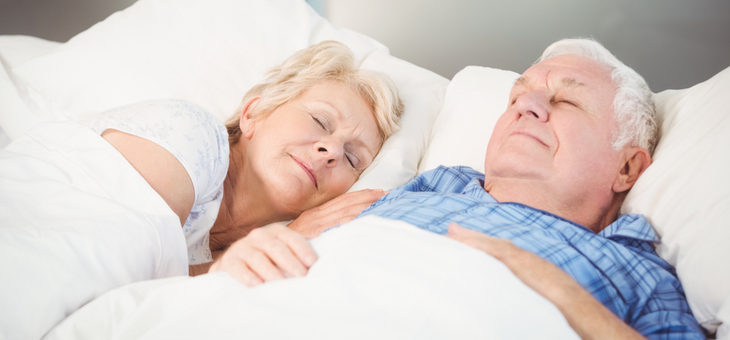“If I want to sleep better at night,” my mother used to say, “I spend the day listening to parliament on the radio.”
Now, I don’t know if this is true or whether it was my mother’s way of casting political comment. Nor do I know if she had sleeping issues and if she did, she didn’t pass them on to me.
But I know people who do sleep badly. My poor daughter-in-law, for example, has to sleep with a husband who snores loudly. He is regularly banished to a different bedroom.
If you have sleeping problems that aren’t as easily solved as my daughter-in-law’s, don’t despair. There is much you can do to improve your situation and none of it requires that you listen to pontificating politicians.
For a start, examine your lifestyle.
Personally, when I have trouble sleeping it’s often because my wife has started talking about financial issues in bed. I’ll wake up in a cold sweat having dreamt that I’ve got nothing in the bank and I owe money everywhere.
Answer? Talk about worrying things such as finances, health or babysitting grandchildren earlier in the day so that they’re not fresh in your mind at bedtime.
And don’t eat chocolate just before cleaning your teeth and pulling on your PJs. That’s too much sugar and caffeine, and caffeine can stay in your system for anywhere between three and 12 hours.
If you do need to eat or drink just before bed, try things that are recommended by health experts. Herbal teas that don’t contain caffeine, such as chamomile, can help, or maybe you just think they help. Either way, it’s helping.
A sugarless biscuit and a glass of milk contain carbs that increase levels of tryptophan, an essential amino acid, which, when missing from your diet, can lead to insomnia.
Don’t get on the exercise bike while watching the late-night movie. Exercise is good, and the more you do, the more you’ll enjoy climbing into bed. Just before dinner is ideal, but after that, you risk winding yourself up and getting the heart pumping when you actually want it quiet and relaxed.
If you do need to do something during the late movie, try stretching. Often, a bad night’s sleep can be caused by tight back muscles or leg cramps. Some yoga exercises or simple stretches might just ease muscle tension.
If you think painkillers are necessary to ease any body pains, then consult with your doctor because prolonged use is never a good thing.
If you are on medications and aren’t sleeping, consult your doctor because some, even simple decongestants, can upset sleep routines.
Napping poses an interesting conundrum. If you’re not sleeping well, then a nap during the day is not recommended because it’s possible the nap is messing with your sleeping patterns.
Only take a nap during the day if you’re sleeping well at night, and never nap too late in the afternoon or for too long.
Finally, if all else fails, count sheep. But remember, this only works if you imagine the sheep are jumping a fence. It doesn’t work if they’re simply standing in a paddock.
The theory here is that you’re expending mental energy, and the more you expend, the better.
Researchers at Oxford University found that subjects who imagined a beach or a waterfall were forced to expend more mental energy and fell asleep faster than those asked to be as empty-headed as possible.
If only they’d asked the subjects to count sheep at the beach.
Do you have any tips for a good night’s sleep? What are your no-nos?
If you enjoy our content, don’t keep it to yourself. Share our free eNews with your friends and encourage them to sign up.
Related articles:
Should you nap during the day?
Sleep poll delivers a wake-up call
Can moderate drinking prolong life?
Disclaimer: This article contains general information about health issues and is not advice. For health advice, consult your medical practitioner.

